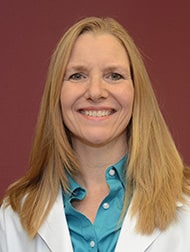
Q. I’ve been on birth control pills for a number of years. How long should I wait after stopping birth control to try to get pregnant?
A. I usually recommend that people wait until they have had 2 menses (periods) after stopping birth control pills before trying to conceive. Oral contraceptives and other forms of birth control thin the uterine lining. This time allows the uterine lining to become a healthy (“thicker”) environment for the developing embryo to implant. During the 2 months coming off oral contraceptives it is advised to keep track of periods on a calendar, eat healthy, exercise, avoid alcohol and begin taking prenatal vitamins.
Q: Are prenatal vitamins important? If so, when should I take them?
A: Prenatal vitamins are very important not only for the growing baby, but also for the mother. If you are unable to get enough of the most important vitamins through your diet, you should take a prenatal supplement that has folic acid, Omega-3 fatty acids, Vitamin D, iron and calcium. If you decide a supplement is best for you, consider starting to take it at least one month before you plan to conceive and then continue through pregnancy and into breastfeeding.
Q. What foods or drinks should I avoid during pregnancy?
A: Some seafood needs to be avoided due to high mercury content which can cause birth defects. This can be confusing because patients should get DHA/omega 3 fatty acids which are found in fish. The best fish to eat is shrimp, salmon, catfish and pollock. White tuna (albacore) should be limited to 6 ounces a week. It is best to avoid shark, swordfish and other larger fish. Due to the risk of food borne bacteria it is recommended to not eat raw or undercooked seafood, eggs or meat… no sushi! It is recommended to avoid unpasteurized milk, hot dogs and cold cuts (lunch meat) unless they are heated thoroughly before serving to prevent listeriosis, a food borne illness caused by bacteria. Pregnant women should not drink alcohol and should limit caffeine to one serving a day. Alcohol is associated with a syndrome of birth defects called fetal alcohol syndrome, and caffeine in large amounts may lead to miscarriage.
NEED A DOCTOR?
DeKalb Medical Physicians Group Montreal OB/GYN is accepting new patients. Call 770.396.2496 or visit http://www.montrealobgyn.com. For a list of all DeKalb Medical Physicians Group primary care physicians and specialists, visit http://www.dmpg.org.
Dr. Elizabeth Kobe is an OB/GYN physician at DeKalb Medical Physicians Group Montreal OB/GYN
Office Info: DeKalb Medical Physicians Group Montreal OB/GYN 1462 Montreal Road W., Suite 412, Tucker, GA 30084
P. 770.396.2496
Physicians: Dr. Stuart Pancer, Dr. Elizabeth Kobe, Dr. Leslie Anne Pope, Dr. Thomas Lyons

